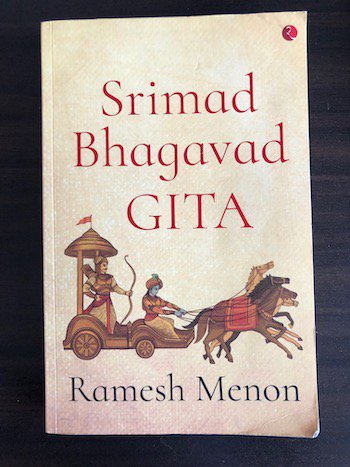Here are my notes on Gita.

He simply cannot bring himself to kill the people he grew up with. So he tells his charioteer, Krishna, that he’d rather die than go to war.
The ideas and concepts in Gita are consistent with other Hindu philosophies and ideas
However, that soul is embodied and unaware that it is one with God.
Gita stresses that the real condition is of non-separateness. That only Brahmana exists that’s beyond time, space and quality.
This idea was expressed in Ramayana as well when Hanuman meets Ram
If after death, there’s positive karma, souls are sent to heaven where they enjoy until they end up using all their balance and then they’re sent back to the Earth.
Also, if action is minimized, karma will not accumulate.
The word duty had a very specific meaning during the time when Gita was written.
The four castes – brahmans, kshatriyas, vaishiyas and sudras – have their work clearly defined in Gita and Krishna stresses that this classification ordained by God.
It executes plans for what the inner-yearning seeks as a goal.
You cannot think your way to happiness, you can only discover it. invertedpassion.com/you-cannot-pla…
Unlike other games in the market, life doesn't come with a tutorial.
Hope you liked my notes and analysis :)


